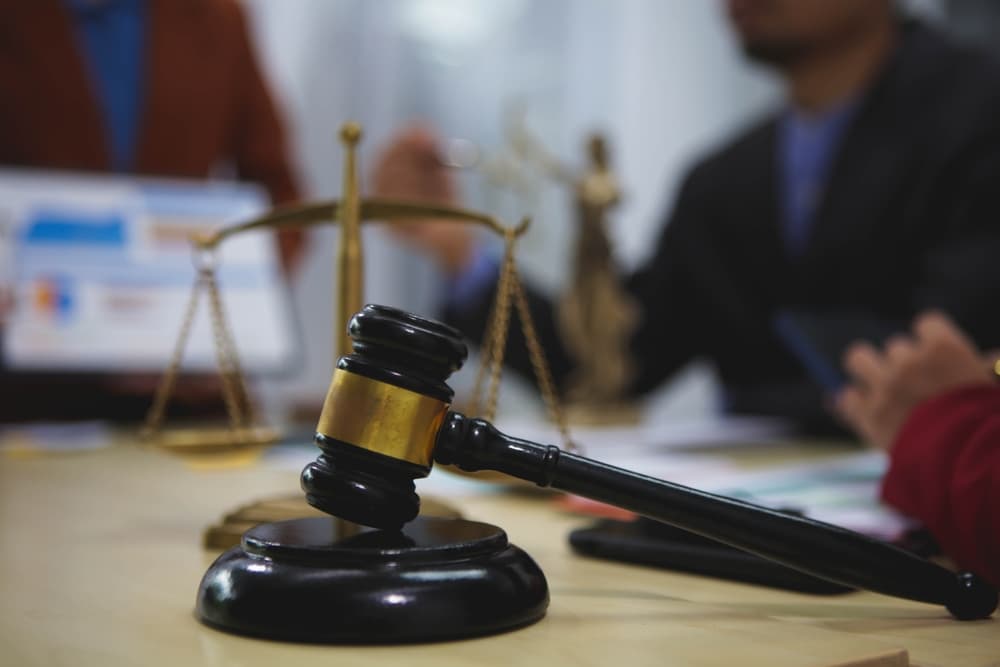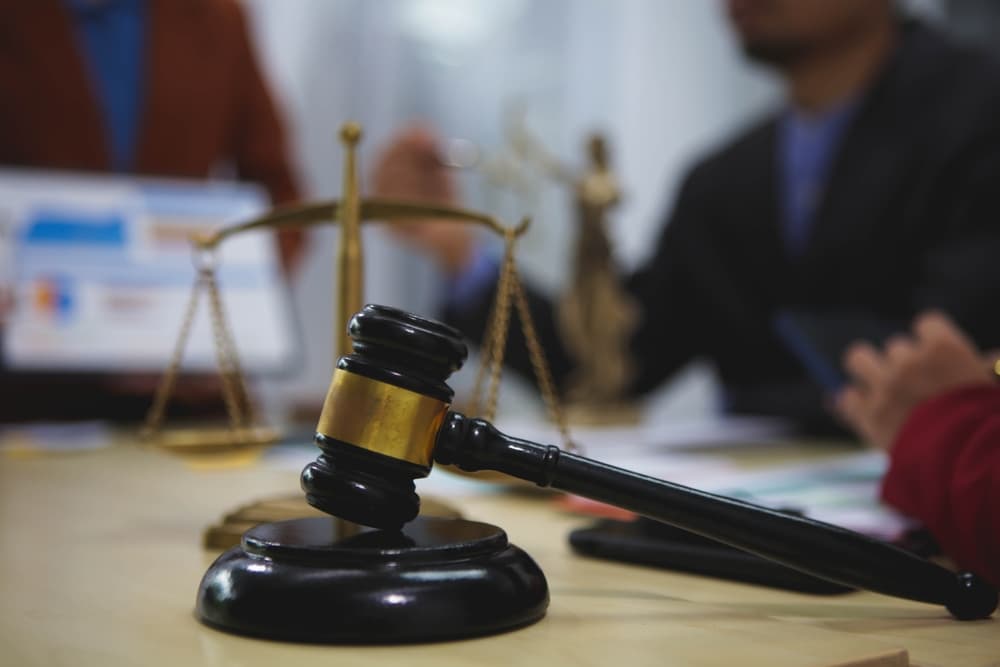Riddle & Riddle Injury Lawyers | October 22, 2024 | Personal Injury

In the aftermath of an accident, one of the most important decisions you’ll make is choosing the right personal injury lawyer. This decision can be the difference between securing fair compensation and being left with mounting bills and insufficient resources for recovery.
In fact, according to a study by the Insurance Research Council, victims who hire an attorney receive settlements for 3.5 times more on average compared to those who don’t.
However, how do you ensure you’re making the best choice? With countless options and high stakes, it’s easy to feel overwhelmed. But don’t worry—this guide will walk you through the essential steps to help you make an informed, confident decision.
Navigating this process can be stressful, but you don’t have to do it alone. Contact Riddle & Riddle at (919) 876-3020 for your free consultation, and let our team help you secure the compensation you deserve.
Understanding the Role of a Personal Injury Lawyer
A personal injury lawyer will help you recover compensation for injuries caused by another party’s negligence, whether through settlement negotiations or taking your case to court. But what exactly does that whole process entail?
Types of Personal Injury Cases
Personal injury law covers a wide range of incidents where someone’s negligence or wrongful actions have caused harm.
Common cases include:

- Motor vehicle accidents: Car, truck, and motorcycle accidents often lead to significant injuries, and North Carolina law allows injured parties to seek damages from the at-fault driver (under § 20-279.21).
- Slip-and-fall accidents: Property owners in North Carolina are legally obligated to maintain safe premises (N.C. Gen. Stat. § 42-42), and failing to do so can make them liable for injuries caused by unsafe conditions.
- Medical malpractice: Medical professionals have a duty of care to patients, and breaches of that duty, such as misdiagnosis or surgical errors, can lead to a medical malpractice lawsuit under N.C. Gen. Stat. § 90-21.12.
The Legal Process
From the moment you engage a personal injury lawyer, they take on the responsibility of guiding you through the complex legal process.
Here’s a general overview of the steps involved:
- Initial Consultation: During this meeting, the lawyer will evaluate your case by reviewing evidence like medical records, accident reports, and witness statements.
- Investigation and Evidence Gathering: Once retained, the lawyer will begin gathering all necessary documents, photos, videos, and expert testimony to strengthen your case.
- Negotiating with Insurance Companies: Insurance companies often try to minimize payouts, but your attorney will handle all communications and negotiations to ensure a fair settlement.
- Filing a Lawsuit if Necessary: If the insurance company’s offer doesn’t meet your needs, your lawyer will prepare to file a lawsuit on your behalf.
- Trial and Verdict: Should the case go to trial, the lawyer will present evidence, call witnesses, and argue your case before a judge or jury.
Steps to Choosing the Right Lawyer
When it comes to selecting the right personal injury lawyer, following a structured process ensures you make an informed decision that aligns with your needs. Here’s a step-by-step guide to help you through the process:
Step 1: Research and Referrals
Begin by building a list of potential attorneys. You can gather names through:
- Personal referrals: Friends, family, or colleagues who have had positive experiences with personal injury lawyers are excellent sources. Ask them about their experience with the lawyer’s communication, professionalism, and case outcome.
- Online research: Websites like Avvo and Martindale-Hubbell allow you to find lawyers by location and practice area while also providing client reviews and peer endorsements.
- Professional organizations: The North Carolina State Bar provides resources to verify that a lawyer is licensed and in good standing. Additionally, many local personal injury attorneys belong to the North Carolina Advocates for Justice (NCAJ), which demonstrates their commitment to justice and ethical practice.
Once you’ve created a list, move on to evaluating their qualifications.
Step 2: Evaluate Credentials
Ensure that any lawyer you consider is qualified to handle your case.
When reviewing their credentials:
- Check bar membership: Verify that the lawyer is in good standing with the North Carolina State Bar. The bar ensures that attorneys meet the state’s education and ethical conduct requirements.
- Look for relevant experience: Ensure the lawyer has a background in handling cases similar to yours. For example, if you’re dealing with a truck accident case, make sure they have experience navigating the complexities of federal trucking regulations.
- Peer reviews: Consider the lawyer’s standing within the legal community. Awards or recognitions like listings in Super Lawyers can indicate high regard from fellow attorneys.
Step 3: Initial Consultations
After narrowing down your list, set up consultations with a few attorneys. The initial consultation is often free, and it gives you the opportunity to ask key questions to determine whether the lawyer is a good fit for your case.
During this meeting:
- Discuss the details of your case: Bring all necessary documents, such as accident reports, medical bills, and any communication with insurance companies.
- Ask about the lawyer’s approach: How do they plan to approach your case? Are they prepared to go to trial, or will they prioritize settlement? It’s important to understand their strategy and whether it aligns with your goals.
- Inquire about who will handle your case: Some law firms delegate much of the casework to junior attorneys or paralegals. Make sure you know who will be handling the core aspects of your case and who will be your main point of contact.
Step 4: Consider Communication Style
A strong attorney-client relationship relies on clear and open communication.
Some questions to ask during the consultation include:
- How often will I receive updates on my case? A good lawyer will keep you informed at every stage of the process.
- Who will serve as my contact? Ensure you have access to the lawyer handling your case, not just support staff.
- How do you handle client questions? Gauge how responsive and approachable they are.
- Will they take the time to explain complex legal concepts, or are they rushing through the consultation? Effective communication builds trust and ensures you are fully aware of your case’s progress.
Step 5: Understand the Fee Structure
Most personal injury lawyers work on a contingency fee basis, meaning they only get paid if they win your case.
This is what that means:
- Contingency percentage: Typically, the lawyer receives a percentage of the settlement or court award. Ensure you know the exact percentage before moving forward.
- Additional costs: Ask about other expenses that may arise, such as filing fees, expert witness fees, or administrative costs. Will the lawyer deduct these costs from your settlement, or will they charge them separately? Clarity on the financial aspects will prevent surprises down the road.
Common Mistakes to Avoid When Choosing a Lawyer
The process of finding the right personal injury lawyer is full of potential pitfalls. Here are the key mistakes to watch out for.
Mistake #1: Relying Solely on Advertisements
Flashy billboards or radio ads may catch your attention, but they shouldn’t be the deciding factor in your choice of a lawyer. Advertisements often focus on general marketing messages rather than conveying a lawyer’s true capabilities.
Keep in mind:
- Big advertising budgets don’t equal success: Some firms spend heavily on ads but may lack the personal attention or experience you need for your case.
- Focus on substance: Look beyond the advertisements and research the lawyer’s history, experience, and client feedback instead.
Mistake #2: Choosing Based on Office Location or Size
The size of the firm and the office’s appearance don’t always correlate with quality service.
- Smaller firms can offer more personalized service: In large firms, personal injury cases might not receive the same attention as they would in a smaller office, where lawyers are more hands-on with each client.
- Local knowledge matters more: It’s often more valuable to hire a lawyer familiar with the local courts, judges, and statutes specific to the state for which your case pertains.
Mistake #3: Not Asking About the Lawyer’s Case Load
An overburdened lawyer can’t give every case the attention it deserves. During your consultation, ask about their current caseload and how much time they can realistically dedicate to your case.
Key questions include:
- How many cases are you currently handling?
- How often will we communicate? A lawyer with too many clients may not respond promptly or spend enough time preparing your case, which can hurt the outcome.
Mistake #4: Overlooking Client Reviews and Testimonials
Client feedback is a valuable resource for understanding how a lawyer operates. Some potential clients skip this step, but reviews can provide insight into a lawyer’s communication style, case management, and results.
Look for:
- Consistent patterns in reviews: Do previous clients mention strong communication, timely updates, or successful outcomes? Be cautious of attorneys with numerous negative reviews or a history of unresolved complaints.
- Peer endorsements: Recognition from other lawyers, such as being listed in Super Lawyers, also speaks volumes about a lawyer’s professional standing.
Mistake #5: Ignoring the Lawyer’s Fee Structure
Many clients overlook the financial aspect of hiring a lawyer, assuming that all personal injury lawyers charge the same fees. However, the contingency fee structure can vary, as can additional costs.
Final Considerations: Trusting Your Instincts

Choosing a personal injury lawyer is more than just checking boxes for qualifications or gathering referrals. At the end of the day, your choice should also feel right. While you’ll likely gather a lot of objective information, trust your instincts. Here’s how to make a confident decision:
Evaluate Your Comfort Level
The attorney-client relationship relies on trust, communication, and mutual respect. Ask yourself:
- Do I feel comfortable discussing personal and financial details with this lawyer?
- Is the lawyer approachable and willing to answer my questions, or do I feel rushed?
These initial impressions matter. A lawyer who listens carefully and responds thoughtfully will likely provide a better experience throughout your case.
Weigh the Pros and Cons
By now, you’ve probably consulted multiple lawyers, asked the important questions, and learned about their experience, fees, and case approach. Take a moment to weigh the pros and cons of each.
Consider:
- Who had the most realistic approach to your case?
- Who communicated the clearest plan for moving forward?
- Which lawyer seemed the most committed to seeing your case through to the end?
Balancing these factors with your own comfort and trust in the lawyer will guide you toward the best choice.
Revisit Key Factors
In addition to comfort, ensure that the attorney meets all of the essential qualifications discussed earlier:
- A solid track record in handling personal injury cases similar to yours.
- Good communication and transparency about fees and case strategies.
- A thorough understanding of local laws and legal procedures in North Carolina.
Don’t Rush the Decision
Finally, take your time. The decision to hire a lawyer can have long-lasting effects on the outcome of your case. Move quickly to protect your legal rights, but don’t feel pressured to choose a lawyer after just one consultation. Feel free to seek second opinions or reach out for further clarification if needed.
We’re Here to Help
Looking for personalized advice on choosing the right personal injury attorney? If you’re still unsure or want more clarification, reach out to Riddle & Riddle at (800) 525-7111.
Contact a Personal Injury Lawyer from Riddle & Riddle Injury Lawyers for Help Today
For more information, please contact Riddle & Riddle Injury Lawyers to schedule a free consultation with a personal injury lawyer in North Carolina today. We have twelve convenient locations in North Carolina, including Greenville, Raleigh, Goldsboro, Jacksonville, Kinston, Charlotte, Greensboro, Durham, Fayetteville, Wilmington, Winston-Salem & Garner.
